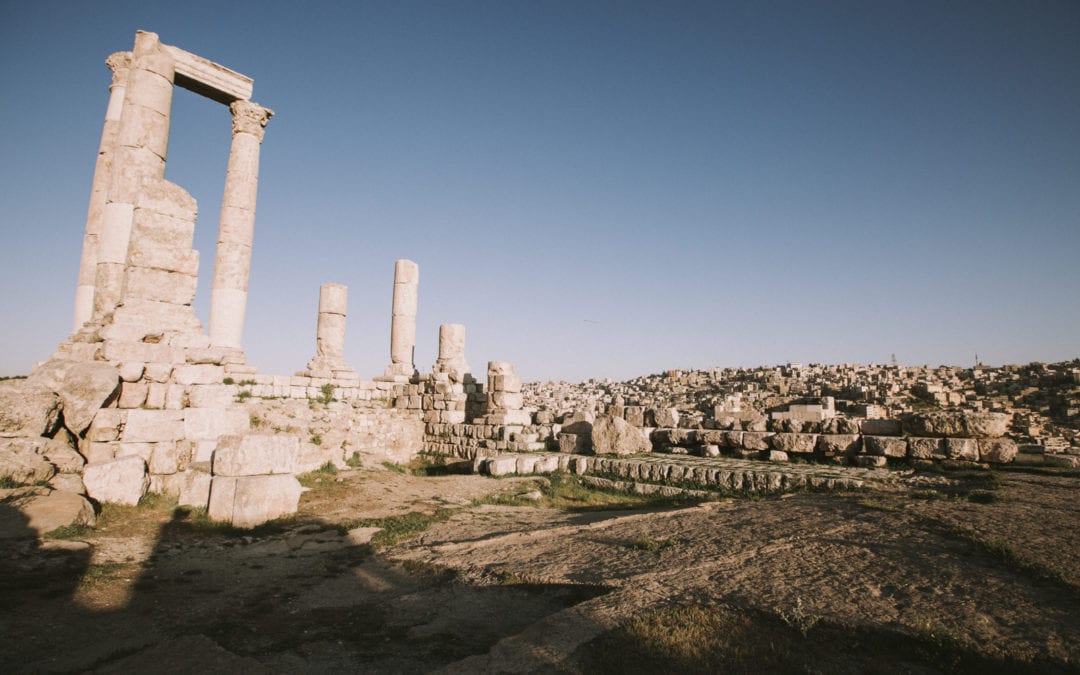
What to do in Amman? A list of 6 things you cannot miss.
Shortly after leaving the airport we can notice the Middle Eastern ambience of the capital of Jordan. However, this is a different atmosphere than in Dubai or Muscat. The real one, unpolluted by too many tourists. There is a mix of new and old Jordan, as Amman was inhabited by not only Arabs, but also Romans, Turks and a few other warrior tribes.
What to do in Amman? Major attractions of the capital of Jordan.
1. Admire the panorama of the city from the hill of the citadel
The highest hill of Amman was inhabited already in ancient times, which you can see with your own eyes visiting a cave and an archaeological museum located in the same place. Next to them are the ruins of the Temple of Hercules and the Umayyad Palace. However, the biggest advantage of this place, is the amazing panorama with a 360 ° view of the entire city.
Admission: 3JD. The opening hours depend on the season. However, it is closed quite early (in summer it’s open to 6.30 p.m).
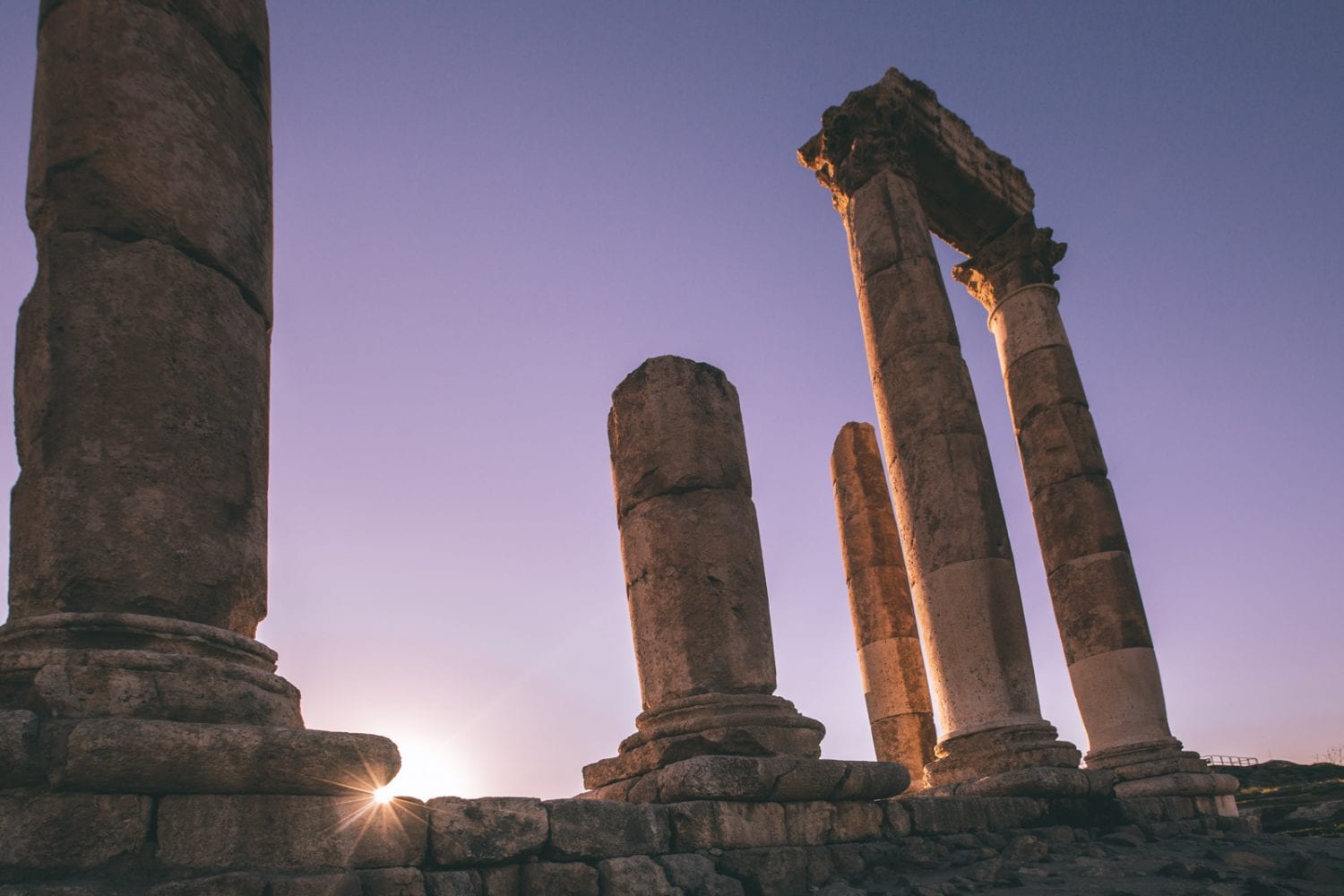
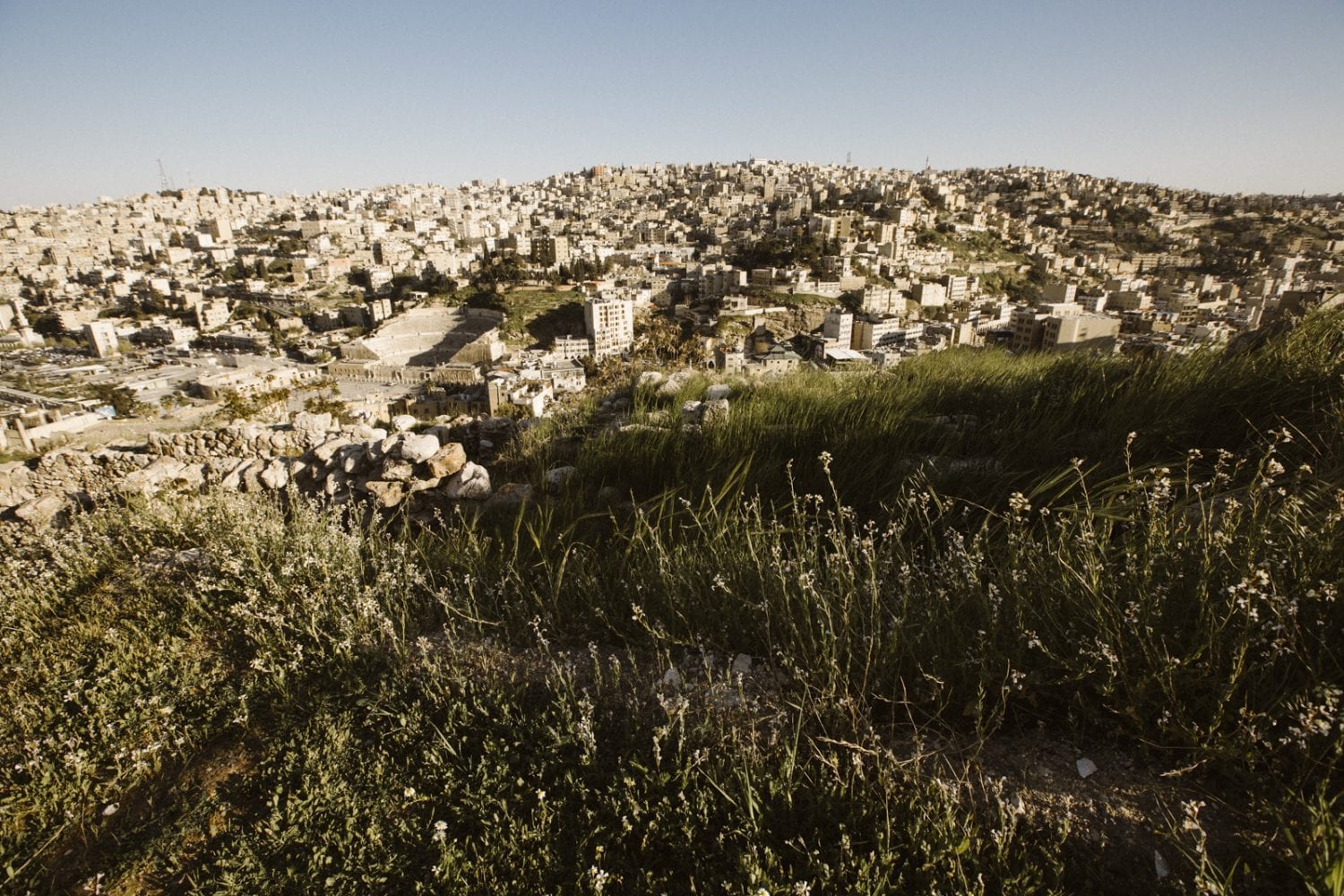
2. Roman amphitheater.
It was built in the second century, hewn in the hillside and restored in 1957. It is still used by the city as a place of events, accommodating up to 6,000 spectators. The square in front of the amphitheater (New Hashemite Square) is also a popular meeting place for Jordanians, so it is worth stopping for a moment and observing everyday local life. You can go to the amphitheater right after the citadel – it’s only a 15 min walk down the hill.
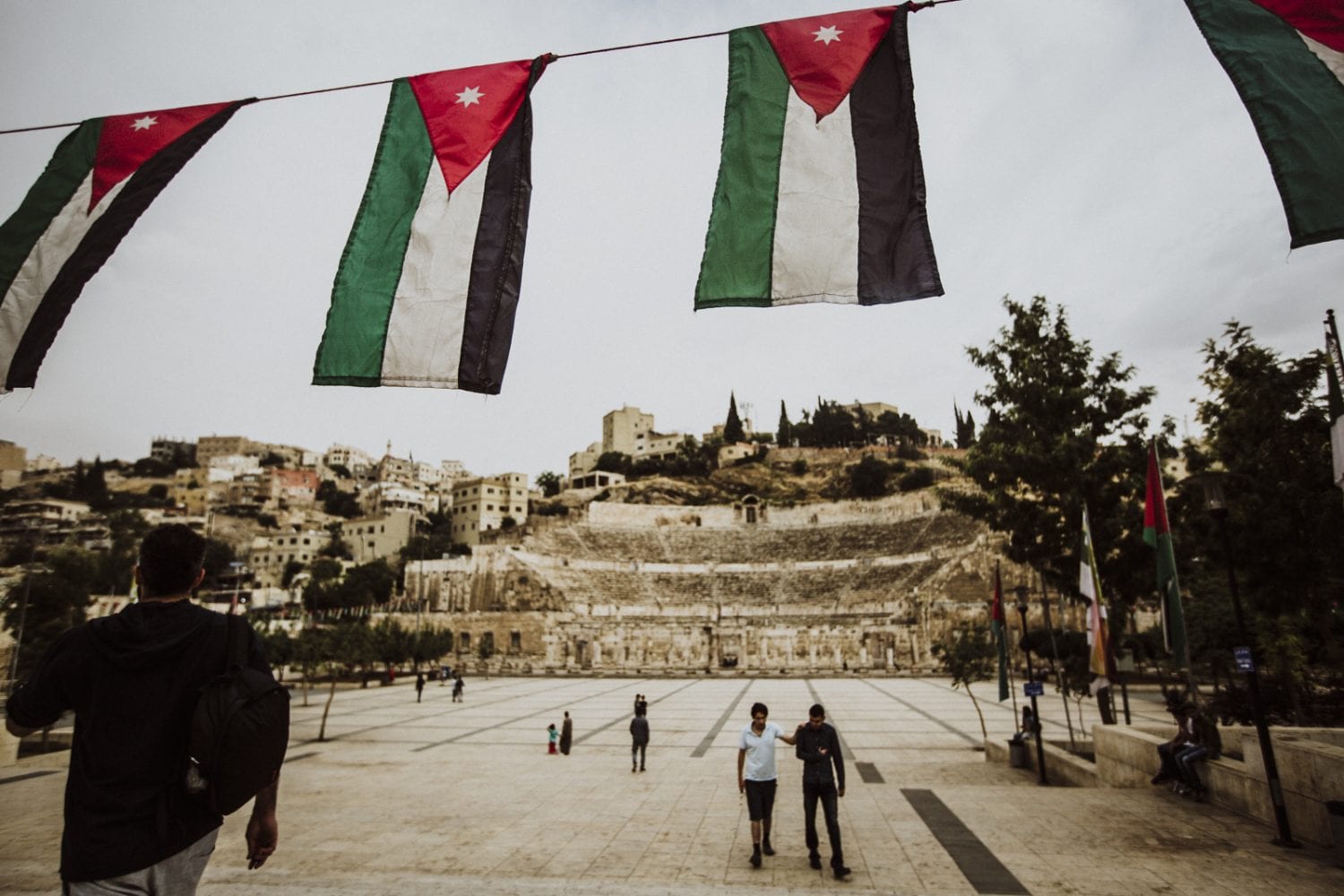
3. Meze and Arabic cuisine
The cuisine of the Middle East, especially Jordan and Lebanon is a very healthy cuisine, rich in fresh vegetables. Meze is the equivalent of Spanish tapas, or small snacks. The most popular are hummus, falafel (chickpea chops), kebbeh (meat and bulgur groats), tabbouleh and fattoush salad and muttabal (mixed eggplant with spices). One of my favourite dishes in the Middle Eastern cuisine is fatteh, i.e. baked pieces of lamb or other meat and aubergine, poured with thick yogurt served with pine nuts and baked, crunchy bread pita on the top. The traditional alcohol in the Levant countries is arak.
Being in the city centre, it is worth visiting the local well-known restaurant Hashem Falafel to try the local cuisine. This very modest place, which was founded in 1952, hosted members of the royal family and diplomats. You usually have to wait a moment for a table.
4. Shopping in the city center
The center of Amman is full of vibrant shops with perfumes, spices, antiques and souvenirs. Turning into one of the side streets you will find traditional bazaars. It is worth looking even only for the atmosphere, especially after dark. The oldest of them is the souk Al-Bukharieh, where you can feel the real Arabian ambience of this place. In the very center there is also one of the most-known mosques – Al-Husseini (admission only for Muslims).
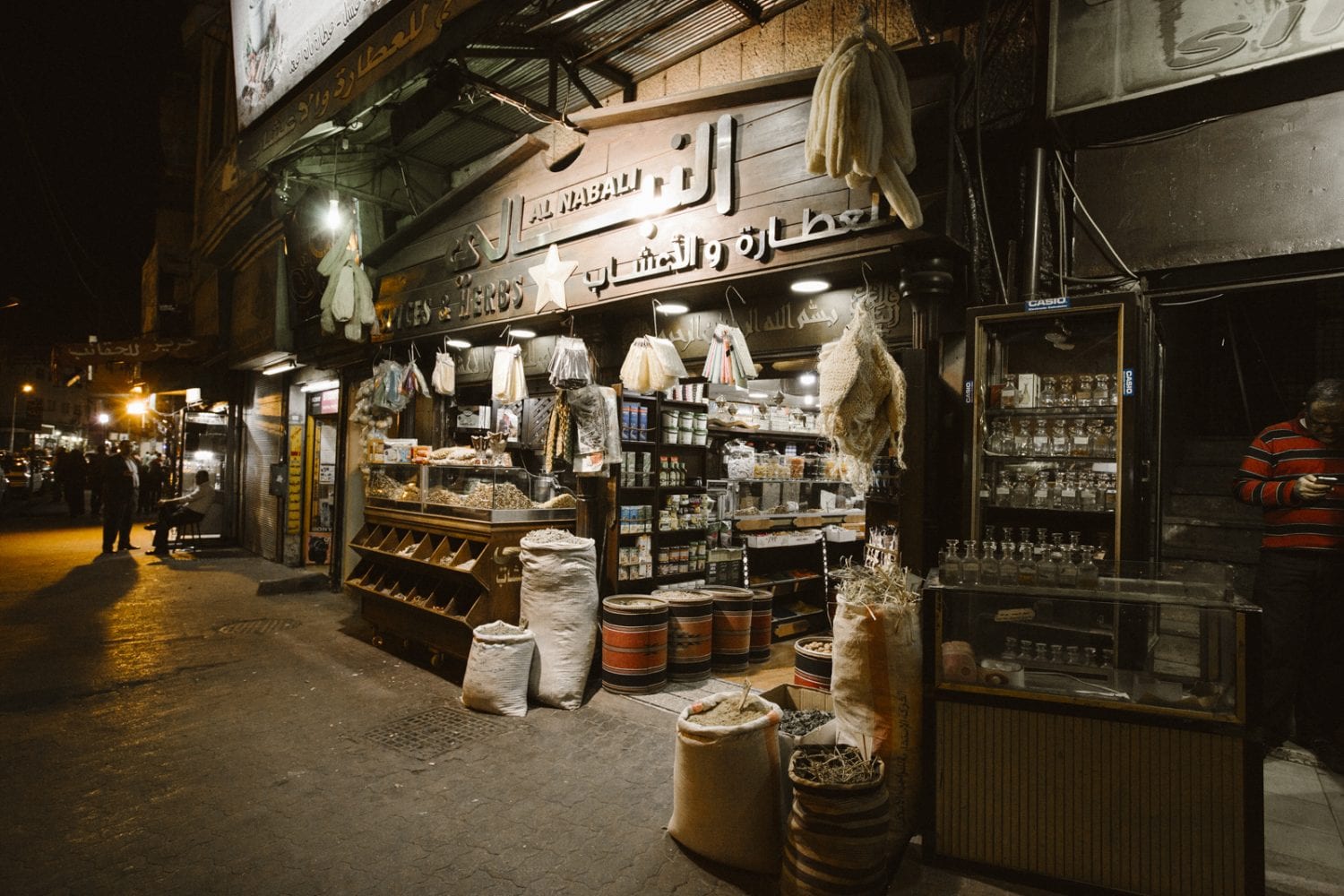
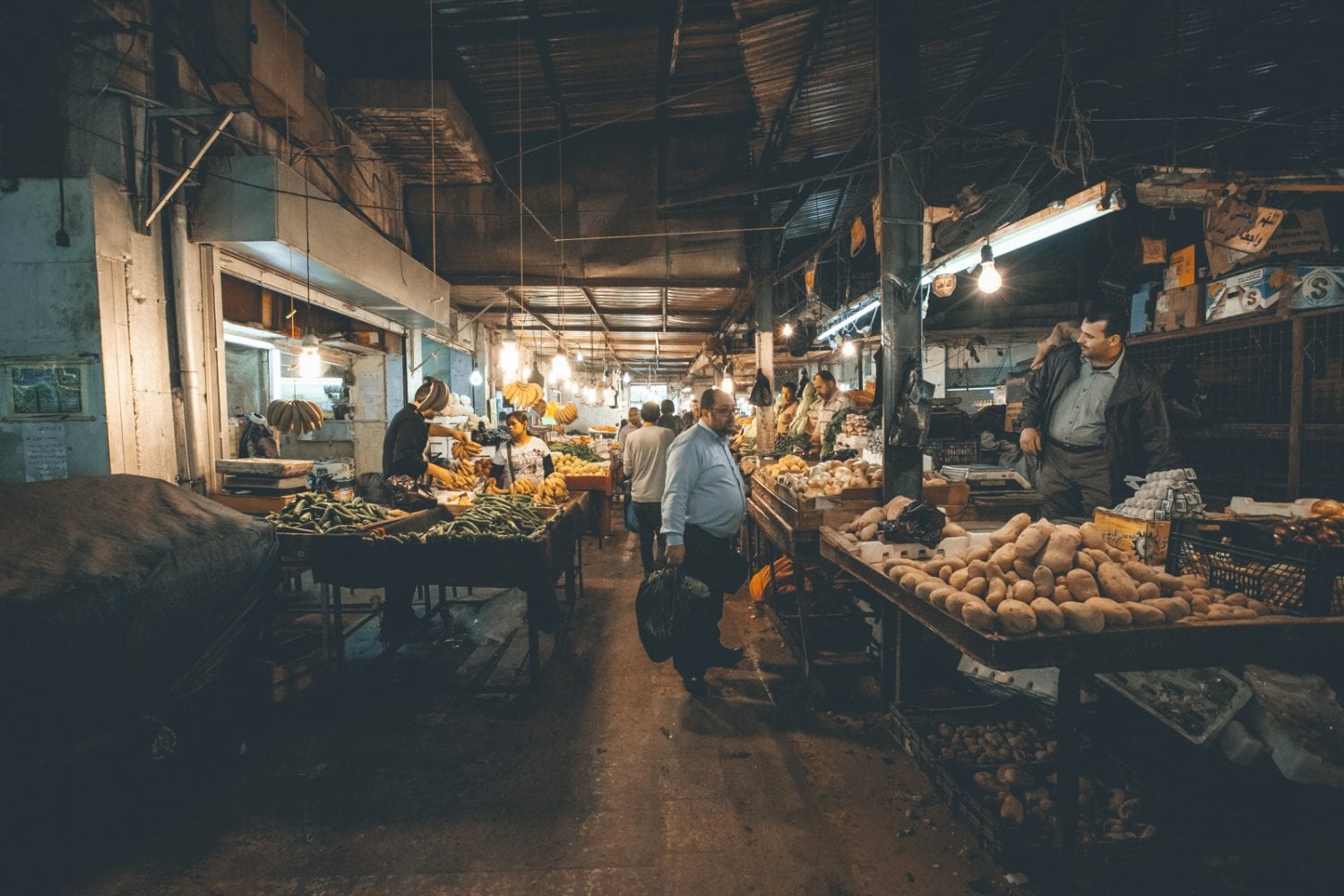
4. Kunafa and Arabic sweets
I have already written about Arabic cuisine, however desserts should have their own separate position. Although they have nothing to do with diet, because they they are soaked in sugar (literally!), they deserve at least one cheat day. The most famous of them – knafeh, made of cheese (ricotta, yellow or goat), covered with pastry, pistachios and poured with rose syrup – served hot. There is a large choice of other Arab sweets, called baklava.
It is said that you cannot visit Amman without visiting the most famous pastry restaurant in the city – Habibah Sweets. And all this for about $ 2 for dessert.
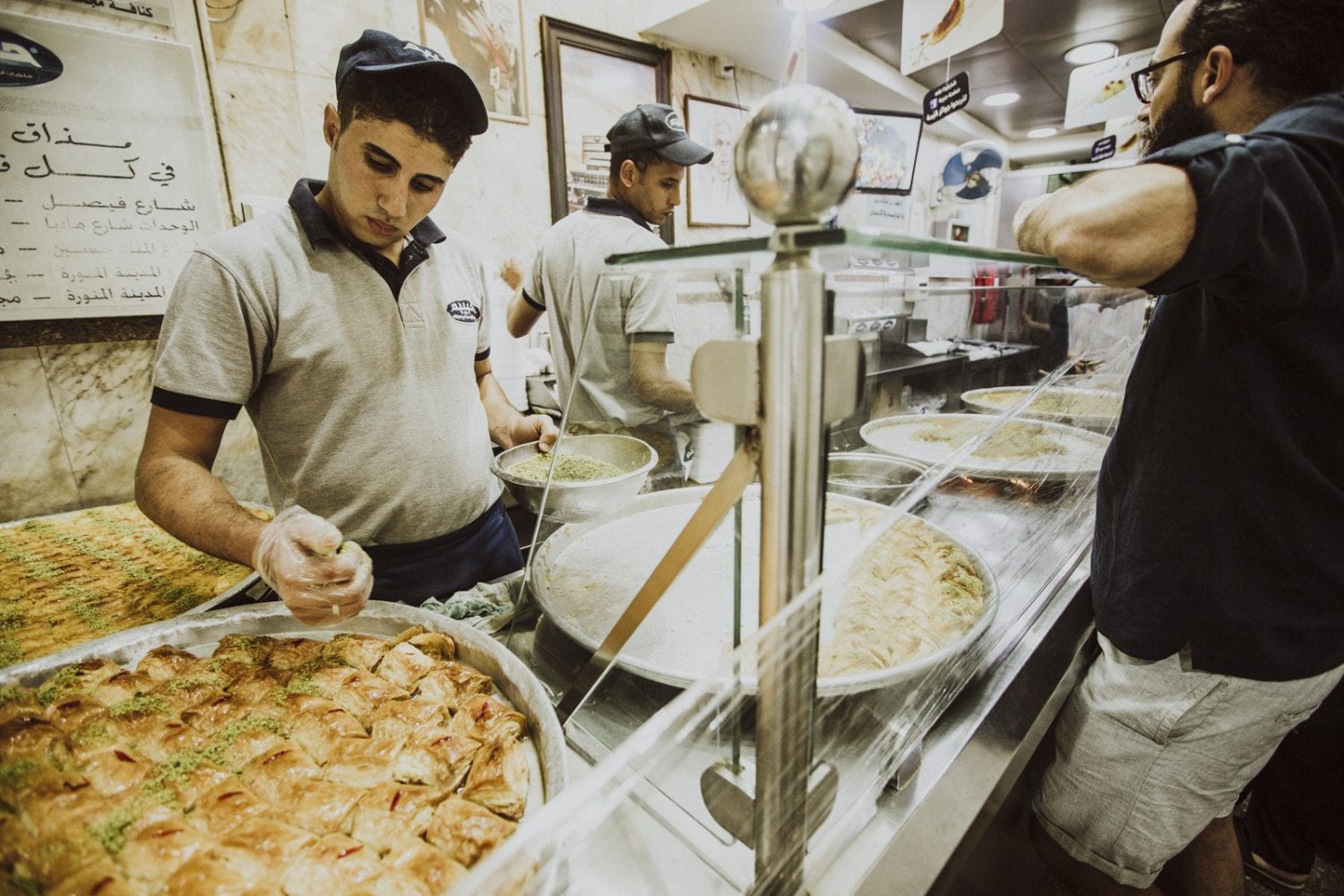
5. Rainbow street
It’s the most famous street for both – residents and tourists, with popular and vibrant pubs and cafes. There are also some worth visiting shops. When searching for a place for a drink, it is worth turning into side streets as well. We found Books @ Cafe – a pub and restaurant with a view of the city skyline and a bookstore in one.
Amman during ramadan
Although Jordan is not that strict and conservative country as Saudi Arabia, during ramadan you may encounter some difficulties. Restaurants usually open after sunset, most of them do not serve alcohol at this time (does not apply to restaurants in the hotels). Some hotels use Ramadan time to carry out renovations, so it may turn out that the swimming pool is closed at this time.


